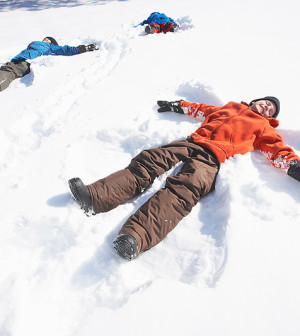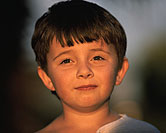- Could Artificial Sweeteners Be Aging the Brain Faster?
- Techniques for Soothing Your Nervous System
- Does the Water in Your House Smell Funny? Here’s Why
- Can a Daily Dose of Apple Cider Vinegar Actually Aid Weight Loss?
- 6 Health Beverages That Can Actually Spike Your Blood Sugar
- Treatment Options for Social Anxiety Disorder
- Understanding the Connection Between Anxiety and Depression
- How Daily Prunes Can Influence Cholesterol and Inflammation
- When to Take B12 for Better Absorption and Energy
- Epsom Salts: Health Benefits and Uses
Is It a Cold or an Allergy?


It can be difficult for parents to tell whether their child has a cold or hay fever, but there are ways to distinguish between the two, experts say.
“Runny, stuffy or itchy noses, sneezing, coughing, fatigue, and headaches can all be symptoms of both allergies and colds, but when parents pay close attention to minor details they will be able to tell the difference,” Dr. Michelle Lierl, a pediatric allergist at Cincinnati Children’s Hospital Medical Center, said in a hospital news release.
“Children who have springtime or fall allergies have much more itching of their noses; they often have fits of sneezing and usually rub their noses in an upward motion,” Lierl explained. “They also complain about an itchy, scratchy throat or itchy eyes, whereas with a cold, they don’t.”
Nasal discharge is usually clear if someone has allergies and yellowish if someone has a cold, she added.
If children have seasonal allergies, Lierl offers the following tips to help ease symptoms:
- Keep home and car windows closed and change air conditioner filters every month.
- Have children wash their face, hands and hair after they’ve been outside. It’s also a good idea to flush their eyes and ears with a nonprescription saline solution.
- Remove clothing. After kids have been outside, they should change their clothes. The clothing should be washed to remove pollen and other allergens.
- Limit children’s outdoor activity in the early morning, when pollen counts are higher.
- Make sure children are taking their allergy medicine daily during pollen season.
More information
The American Academy of Pediatrics has more about seasonal allergies in children.
Source: HealthDay
Copyright © 2026 HealthDay. All rights reserved.










